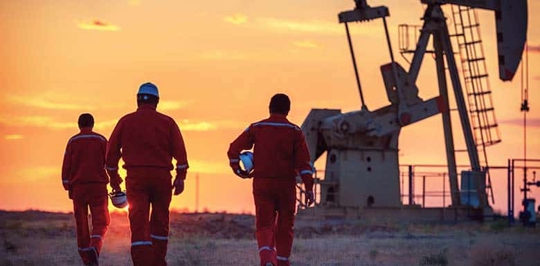According to the American Petroleum Institute, the oil and gas industry is responsible for 9.8 million jobs. Most Texans benefit significantly from this lush job market in their backyard; however, working on an oilfield is not for the faint of heart. An article by Industrial Safety & Hygiene News ranked oil and gas jobs as the third most dangerous in the United States. Additionally, they reported a fatal injury rate of 46 per 100,000 workers.
Although oilfield workers face high risks, they are mitigated as much as possible due to the safety standards of the Occupational Safety and Health Administration. When safety standards aren’t met, and negligence is involved, injury and death occur. This has led many families to seek justice for their loved ones.
Oilfield Injury and Fatality Stats
OSHA reported 489 oil and gas extraction fatalities from 2013 to 2017. Furthermore, they issued nearly 11,000 citations to companies in the oilfield industry over ten years.
Most Recent Injury and Fatality Data
- In 2017, there were 69 fatalities, and the average number of rigs reached 876
- Texas saw nearly forty-five of the total oilfield fatality injuries in 2017
- According to FOG data, accidents involving motor vehicles accounted for nearly thirty of the sixty-nine fatalities
- Contact injuries, including crushings, being struck by falling objects, and being struck by any object accounted for twenty-four percent of the total fatalities in 2017
- Electrocutions accounted for ten of the sixty-nine oilfield fatalities in 2017
- Explosions are the most common cause of accidents involving multiple oilfield fatalities
Common Causes of Oilfield Fatalities
Oilfield fatalities can happen in several different ways, but some occur more often than others, including:
- Fires and explosions – When equipment malfunctions, is defective, or oilfield employee negligence occurs, oilfield explosions can cost people their lives. According to the CDC, improper handling of chemical substances has also recently caused oilfield explosions resulting in multiple fatalities.
- Contact injuries – When an oilfield worker is struck by an object, caught between machinery or equipment, or is hit by a falling object, these are considered contact injuries.
- Vehicle accidents – Oilfield vehicle accidents caused more than forty percent of the oilfield fatalities in 2017. But only ten percent of these occurred on the oilfield site.
To reduce the number of oilfield fatalities in the industry, both employers and workers must follow safety protocols to minimize the risk of injury or death.
Legal Options for Surviving Family Members
You would have several legal options if your loved one died in a fatal oilfield accident. First, you may be able to file a claim with the oilfield’s insurance company. An insurance settlement might be inadequate compensation and may not hold liable parties accountable for their negligent actions.
Filing a Wrongful Death Lawsuit for Compensation
When insurance settlements do not achieve the desired financial or legal results, it might be time to file a wrongful death lawsuit. You could recover maximum compensation for your economic and emotional losses. Equally important, you can help ensure that the liable parties are held accountable. Your action might prevent future injury or death.
Get Help From an Oilfield Fatality Lawyer Today
If you have a loved one who suffered a fatal injury in an oilfield accident, contact an oilfield fatality lawyer at Kemmy Law Firm for help.
Together, we can explore your legal options for financial recovery and bring the liable party to justice. Schedule your free, no-obligation consultation when you fill out our online contact form or call our office at (830) 264-6297.
The post Oilfield Fatalities in 2017 appeared first on Kemmy Law Firm.






